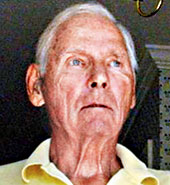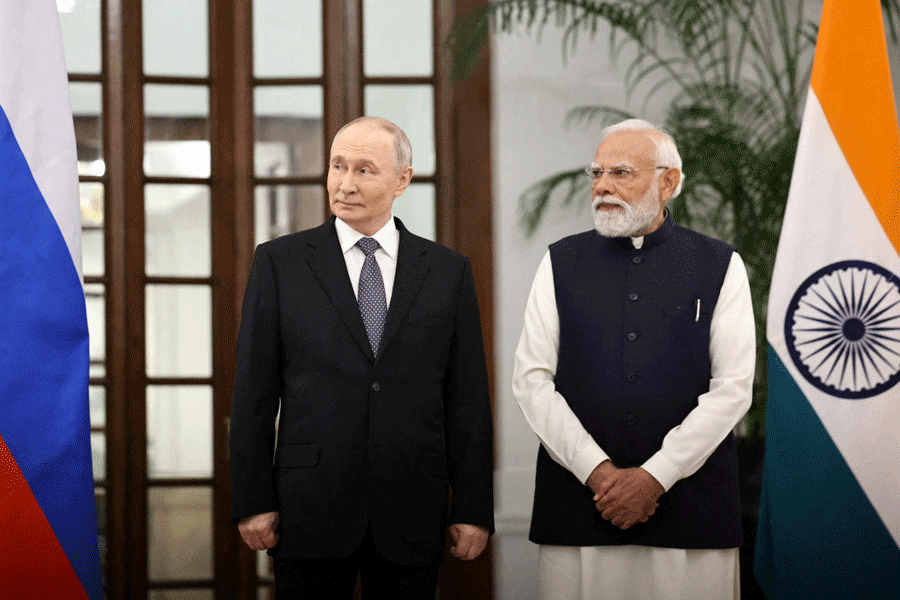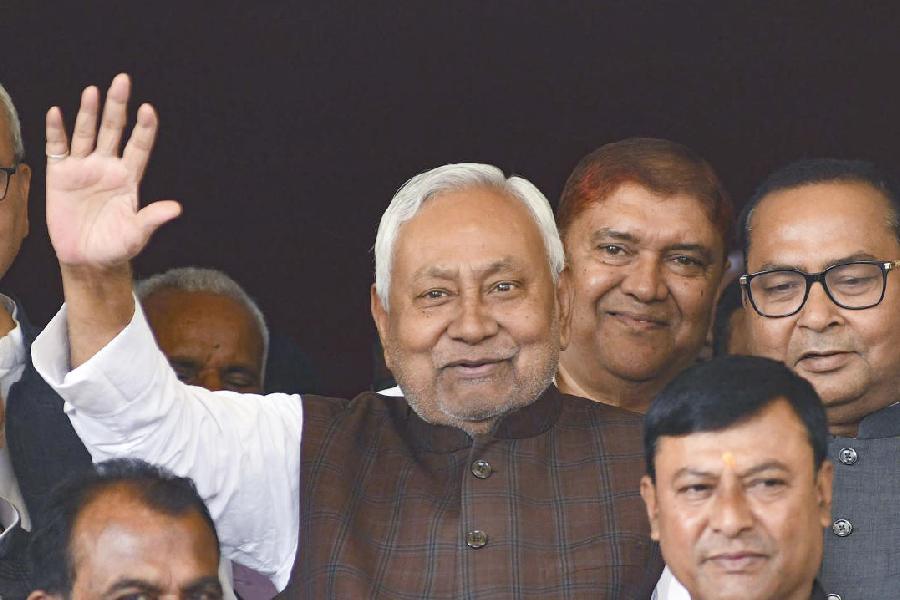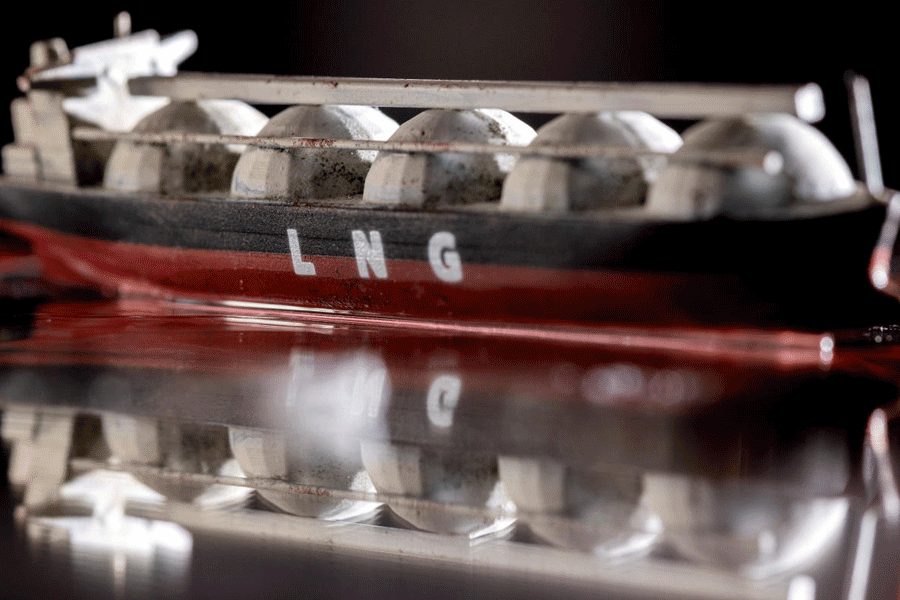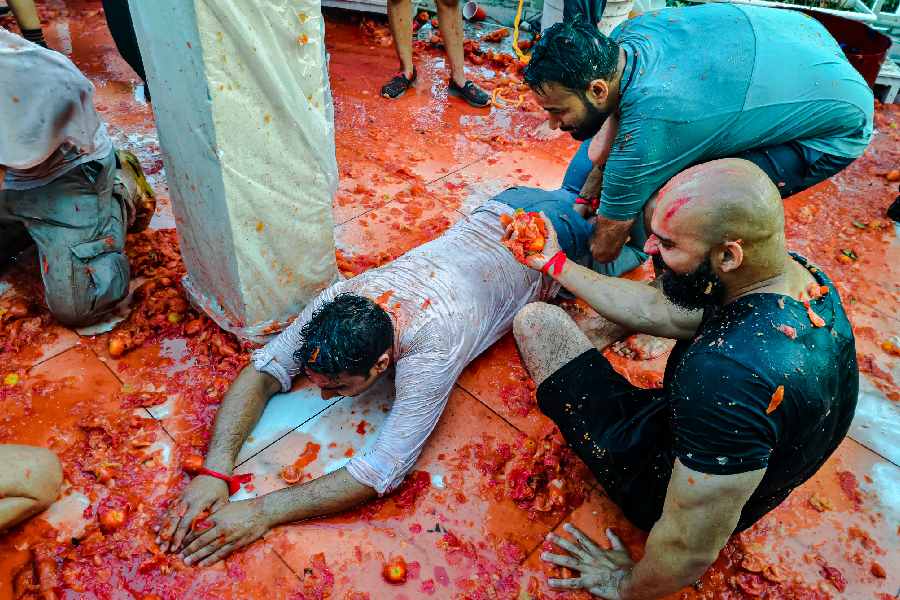 |
| Warren Anderson |
Bhopal, Oct. 31: Bhopal gas victims today took in the news of Warren Anderson’s death in a mood of sombre reflection punctuated by the occasional angry outburst, regretting that the “world’s worst corporate criminal died unshackled”.
The former Union Carbide chief executive, seen as the villain of the 1984 Bhopal gas disaster and who lived quietly in America repeatedly switching homes to avoid subpoenas, died in Florida on September 29, aged 92.
His death was not announced by his family but was confirmed from public records by The New York Times. The almost unnoticed event took to the grave one of the last — if not the last — protagonists who could have provided answers to the abiding mystery over who facilitated his escape from India.
The controversy had sucked in Prime Ministers, a chief minister and a US President. None of them — Rajiv Gandhi, P.V. Narasimha Rao, Arjun Singh or Ronald Reagan — is alive now.
In an inexplicable twist of history, the delayed news of Anderson’s passing reached the country on the 30th death anniversary of Indira Gandhi and compelled it to pause and reflect on 1984. It was the year India lost its innocence when Operation Bluestar was launched, Indira Gandhi was assassinated, thousands of Sikhs were massacred and the Bhopal disaster struck.
Three decades on, Rashida Bee, 62, who lost six family members to cancer blamed on the gas leak, could not resist spitting on a poster showing Anderson’s face and captioned: “Murderer of Bhopal”.
“He should have been jailed for the rest of his life but didn’t spend a day behind bars,” rued the joint recipient of the 2004 Goldman Environmental Prize, often dubbed the “Green Nobel”, which honours grassroots environmentalists.
Her fellow survivors and activists waved posters and shouted slogans outside the now abandoned Union Carbide factory, an old and tired routine suddenly injected with fresh poignancy.
Campaigner Abdul Jabbar said he harboured no hatred for Anderson. “He was a foreigner, devoid of emotion, and made full use of legal loopholes,” he said. “I hold Arjun Singh, Rajiv Gandhi and other key players responsible. Even the judiciary’s role has been questionable.”
The gas leak from the factory on December 2-3 night, 1984, is estimated to have killed between 3,700 (official figure) and 25,000 people (activists’ estimate) and poisoned half a million. Its long-term effects — soil and water pollution; cancer and diseases of the lung, liver and kidney; birth deformities — continue to torment and kill today.
In 1989, Union Carbide paid the Centre $470 million in an out-of-court settlement — a sum deemed pitiful by the survivors who blame the judiciary for letting it happen.
Nor had the government been able to bring Anderson back, with Washington rejecting the first extradition request of 1992 while the second, moved in 2011, was pending when he died.
“With the support of the United States government, he escaped extradition,” The New York Times reported.
Balkrishna Namdeo of the Bhopal Gas Peedit Nirashrit Pension Bhogi Sangharsh Morcha said: “There was no attempt by the Indian government to expedite the extradition.”
Safreen Khan, a 22-year-old, said: “Since our childhood we have been looking at Anderson’s face as the face of evil. Now we can only hope for justice from God.”
But if the victims’ sufferings have gradually faded from public interest, the conspiracy theories and political secrecy surrounding Anderson’s dramatic arrival and lightning escape from India still continue to create ripples.
Anderson had landed in Bhopal via Delhi four days after the gas leak and was arrested immediately. But he was let off within hours, apparently after a senior government leader in Delhi called up then chief minister Arjun Singh.
Till his death in 2011, Arjun refused to name the caller while milking the mystery to build up interest after being sidelined from power. Speculation swirled around the roles of Rao and then Prime Minister Rajiv.
Captain D.C. Sondhi, one of the pilots who had flown Anderson out of Bhopal in a state aircraft after his release, recently told The Telegraph: “The buzz among bureaucrats was that US President Ronald Reagan had spoken to someone important in India to get Anderson out quickly.”
Sondhi had described how Anderson had made his escape from Indian law in a hail of salutes from senior Bhopal police officers who repeatedly offered to carry the American’s hand luggage as they escorted him to the plane.
“Memories of that scene still make me angry,” Sondhi had said. “Here was a man responsible for the death of thousands, and our government officials were saluting him!”
Some commentators in the West had viewed the events through a different prism. Anderson was highly praised by sections of the western media for his courage in going to Bhopal four days after the accident. But they noted that he never returned to face trial.
It was also suggested that Union Carbide had to find a balance between “the instincts of human compassion, the demands of public relations and the dictates of corporate survival”. But “the Indian public, cheered on by politicians and the news media, never stopped urging the prosecution of Anderson”, The New York Times pointed out.
Anderson wore a mask during his six-hour stay in Bhopal, appeared casual and showed “signs of arrogance”, remembers then Bhopal collector Moti Singh.
Arjun has claimed in his autobiography that when he broached the subject of Anderson’s possible arrest with Rajiv during a tour of Bhopal hospitals a day before the American’s arrival, the then Prime Minister had kept mum. “At one of the hospitals that we visited, Rajiv took me aside to brief me. It was something rather confidential, which, naturally, I could not have shared with anyone,” he wrote.
“Everyone later wanted to know, ‘What did he say? What was it all about? What were his instructions or his brief?’ Well, even today I cannot reveal what he told me. It is a state secret that I shall carry to my grave.”
Anderson also appears to have done so, unless an authorised book surfaces. Even then, none of the principal players — except those who continue to suffer — from that day’s dramatic events is alive now to authoritatively confirm or dispute any account.
 |

